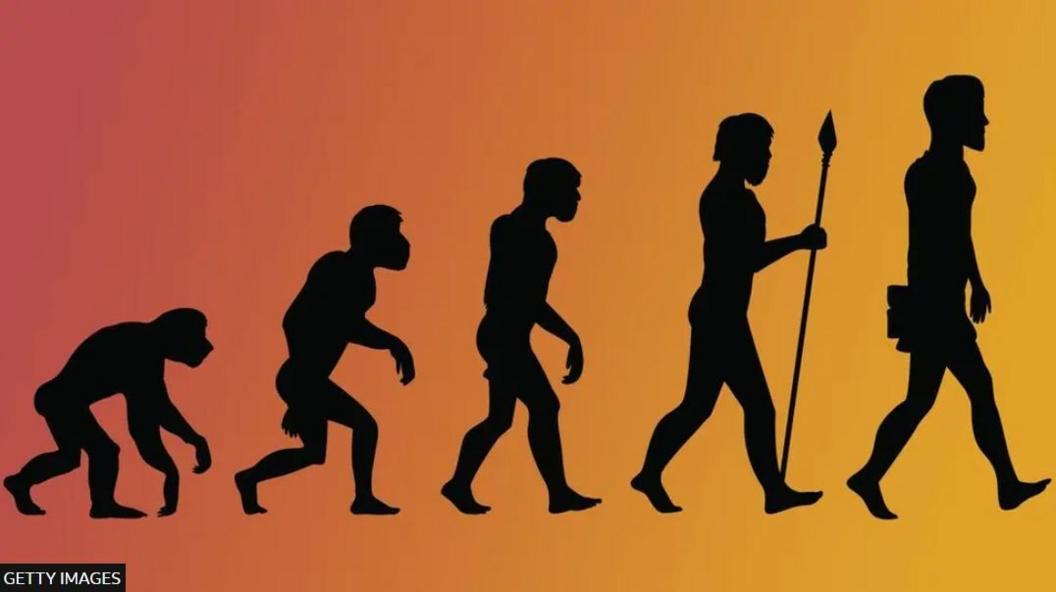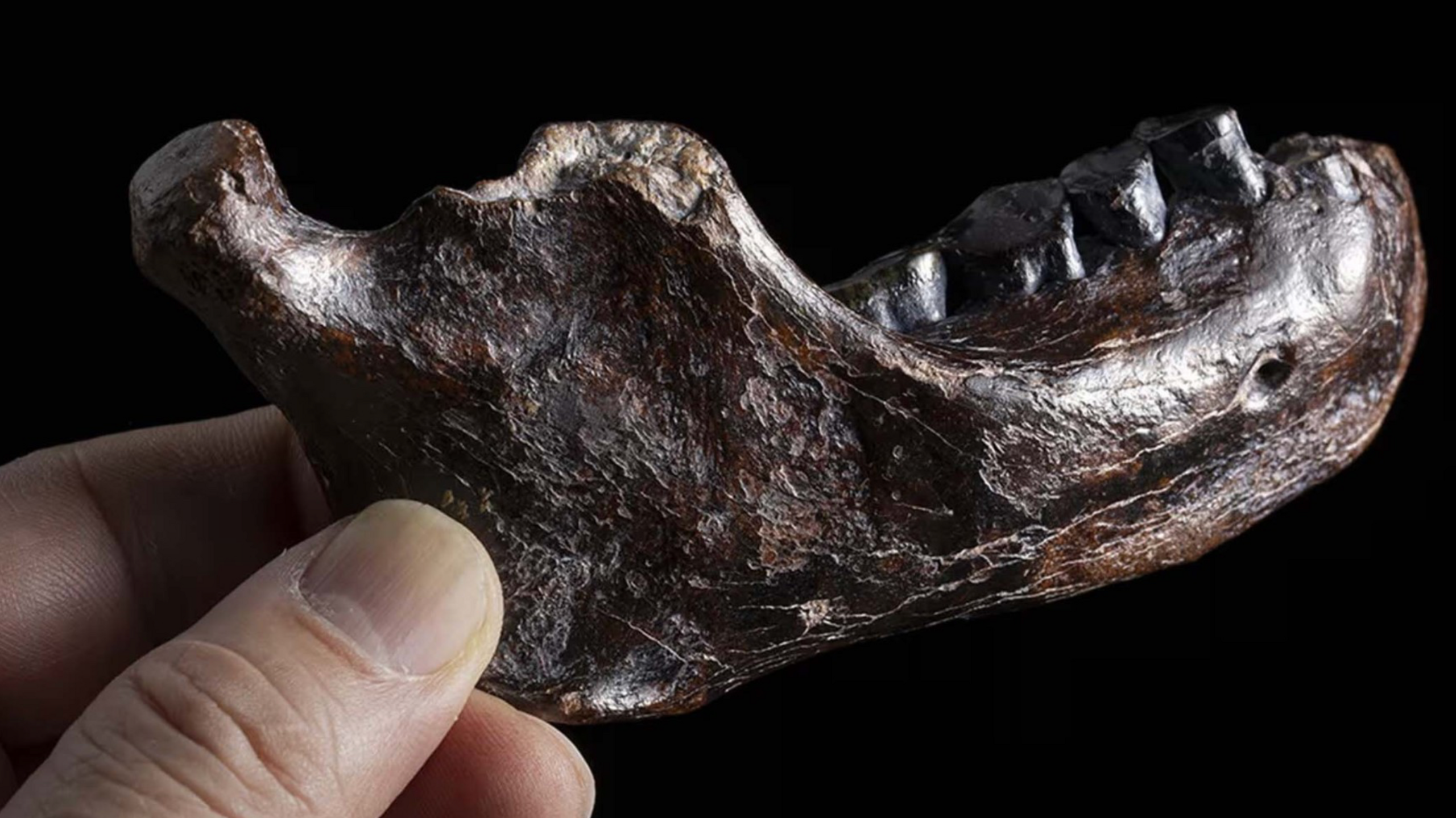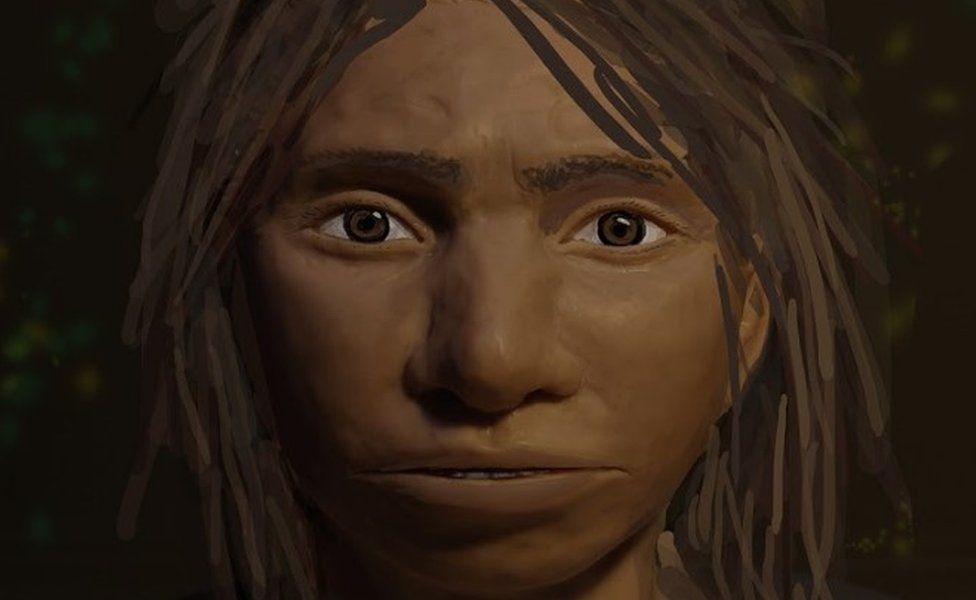Ancient jawbone could have come from our Denisovan ancestors

Humans have other extinct ancient relatives
- Published
An ancient jaw bone discovered by fisherman in Taiwan, could help us understand more about our ancestors.
The bone is thought to be at least 10,000 years old and could belong to the Denisovans, early humans who are related to us, but who experts don't know a lot about.
More tests are needed before it can be confirmed to be Denisovan - but if it is from this group, it's hoped it could help us understand more about how and where they lived.
After being found by the fishermen, it was sold to an antique shop where a collector spotted it and bought it 2008.
It was only later that it was donated to Taiwan's National Museum of Natural Science and further research began to try and unearth who it belonged to.
Ancient bones of the world's tiniest 'hobbit' humans discovered
- Published9 August 2024
Scientists find Europe's oldest human fossil!
- Published13 July 2022
New ancient species could be humans' closest relative
- Published26 June 2021
Who did this jawbone belong to?

While the fossil been linked to a variety of different groups over time, the new research published in the journal Science, hopes to finally put this debate to rest.
Although the condition of the fossil has made it impossible to study the ancient DNA, some scientists in Taiwan, Japan and Denmark have been able to extract some protein sequences.
By comparing these to other remains, the researchers believe that it represents the lower jaw of a Denisovan male.
The remaining bone fragments show a strong jaw and very large, powerful molars.
The fossil has been dated to the Pleistocene era, a period that spanned from about 2.6 million to 11,700 years ago.
Who are Denisovans and how much do we know about them?

Expert research suggests Denisovans became extinct tens of thousands of years ago
At one time, at least three human ancestor groups — Denisovans, Neanderthals and Homo Sapiens — lived side by side and sometimes mixed.
Denisovans are the least understood group, as so far the only fossils of them found have been fragmented remains.
These have included jawbones, teeth, and finger bones found in caves in Siberia and Tibet, but some researchers also think that fossils discovered in a cave in Laos could be attributed to Denisovans.
Takumi Tsutaya of the Graduate University for Advanced Studies in Japan has said that if the jawbone from Taiwan is Denisovan, it expands the region where scientists know these ancient people once lived.
Previous genetic signs of Denisovans have been found across large parts of Asia, and it's thought that they passed on genes that help with life at high altitudes to the people living in the mountain country of Tibet.
